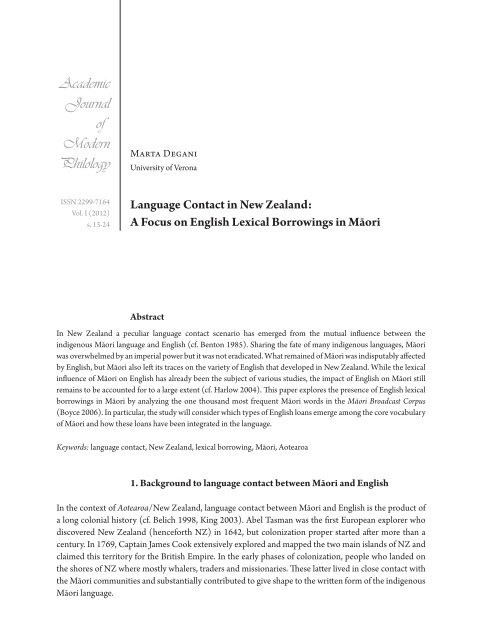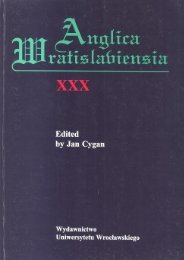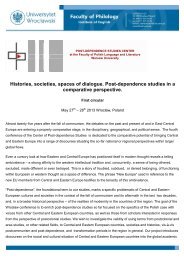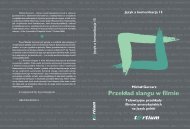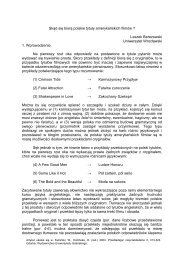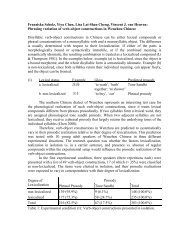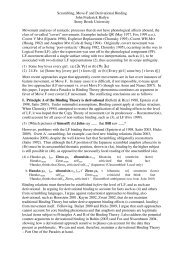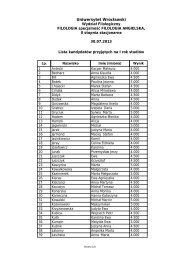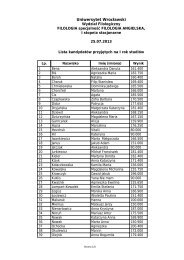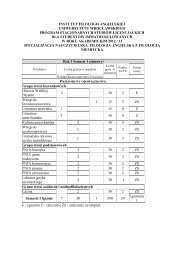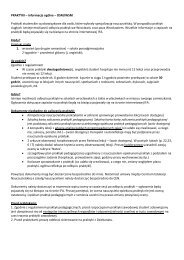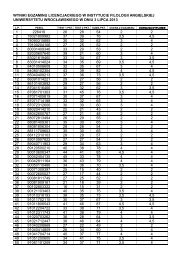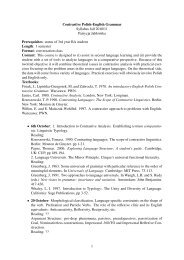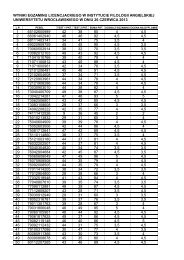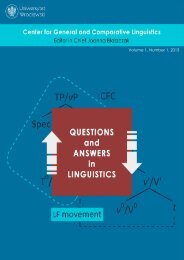Academic Journal Modern Philology
Academic Journal Modern Philology
Academic Journal Modern Philology
You also want an ePaper? Increase the reach of your titles
YUMPU automatically turns print PDFs into web optimized ePapers that Google loves.
<strong>Academic</strong><br />
<strong>Journal</strong><br />
of<br />
<strong>Modern</strong><br />
<strong>Philology</strong><br />
Marta Degani<br />
University of Verona<br />
ISSN 2299-7164<br />
Vol. I (2012)<br />
s. 13-24<br />
Language Contact in New Zealand:<br />
A Focus on English Lexical Borrowings in Māori<br />
Abstract<br />
In New Zealand a peculiar language contact scenario has emerged from the mutual influence between the<br />
indigenous Māori language and English (cf. Benton 1985). Sharing the fate of many indigenous languages, Māori<br />
was overwhelmed by an imperial power but it was not eradicated. What remained of Māori was indisputably affected<br />
by English, but Māori also left its traces on the variety of English that developed in New Zealand. While the lexical<br />
influence of Māori on English has already been the subject of various studies, the impact of English on Māori still<br />
remains to be accounted for to a large extent (cf. Harlow 2004). This paper explores the presence of English lexical<br />
borrowings in Māori by analyzing the one thousand most frequent Māori words in the Māori Broadcast Corpus<br />
(Boyce 2006). In particular, the study will consider which types of English loans emerge among the core vocabulary<br />
of Māori and how these loans have been integrated in the language.<br />
Keywords: language contact, New Zealand, lexical borrowing, Māori, Aotearoa<br />
1. Background to language contact between Māori and English<br />
In the context of Aotearoa/New Zealand, language contact between Māori and English is the product of<br />
a long colonial history (cf. Belich 1998, King 2003). Abel Tasman was the first European explorer who<br />
discovered New Zealand (henceforth NZ) in 1642, but colonization proper started after more than a<br />
century. In 1769, Captain James Cook extensively explored and mapped the two main islands of NZ and<br />
claimed this territory for the British Empire. In the early phases of colonization, people who landed on<br />
the shores of NZ where mostly whalers, traders and missionaries. These latter lived in close contact with<br />
the Māori communities and substantially contributed to give shape to the written form of the indigenous<br />
Māori language.


